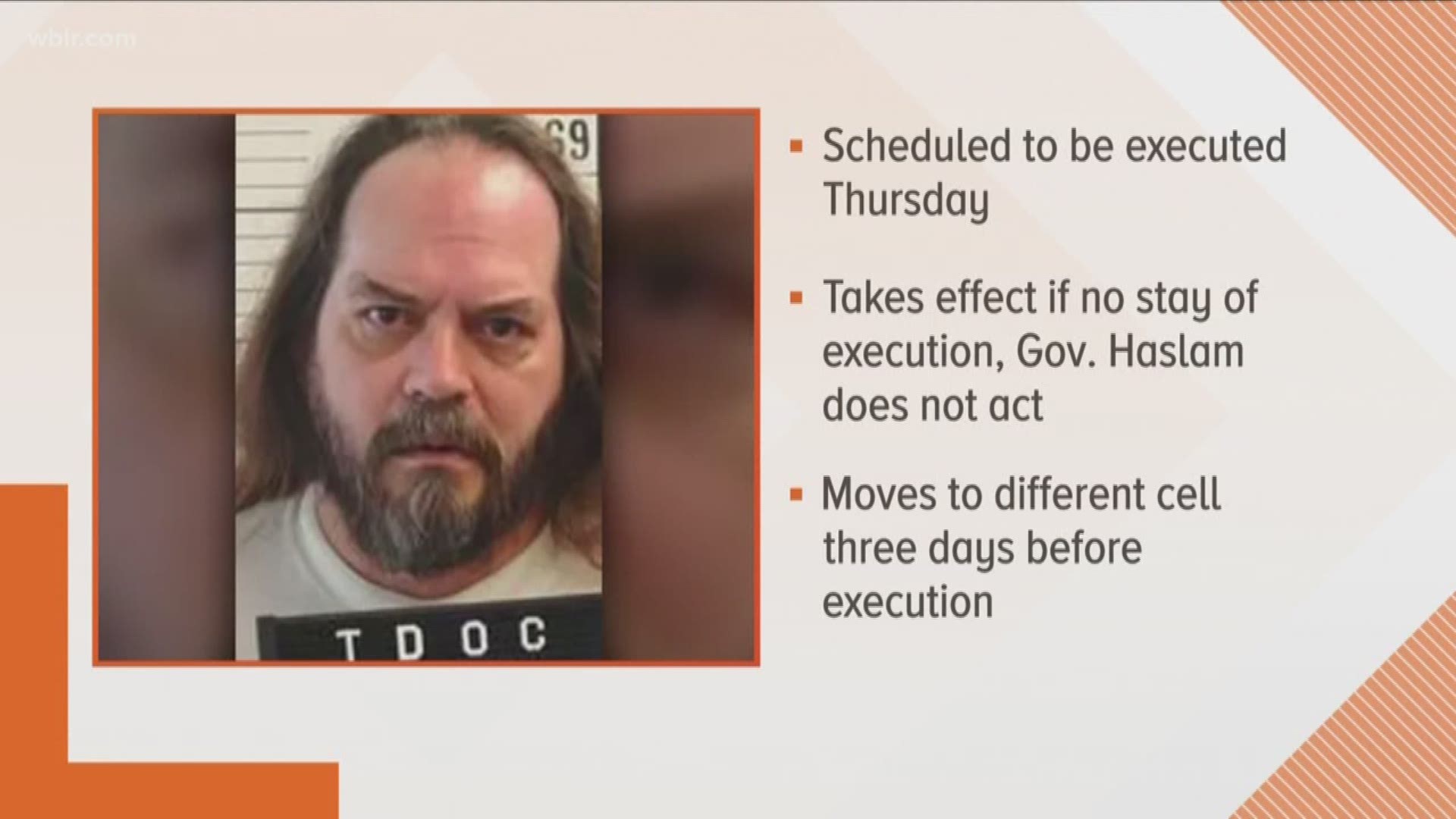Attorneys representing Billy Ray Irick, a death row inmate scheduled to be executed Thursday, have asked the U.S. Supreme Court to step in and delay his death while his challenge of Tennessee lethal injection drugs is pending.
Lawyers filed the application for a stay Tuesday morning, a day after the Tennessee Supreme Court and Gov. Bill Haslam refused to postpone Irick's execution.
The attorneys argued that the issues at stake in the ongoing challenge of Tennessee's three-drug execution method "are weighty and should only be decided after a studied review of the voluminous record."
"Equity demands a stay of execution ... to prevent Mr. Irick’s execution before the appellate process has even begun," the attorneys wrote. "Denial of this motion will deny Mr. Irick his right to appeal."
Federal public defender Kelley Henry, who is leading the inmates' lethal injection challenge, submitted the request along with Irick's criminal defense attorney Gene Shiles.
In the pending appeal, Irick and 32 other death row inmates argue that Tennessee's new lethal injection protocol, which includes the controversial drug, midazolam, leaves the inmates in excruciating pain before they die. The pain is so powerful, they have argued, that it constitutes unconstitutional torture.
The trial court rejected that argument after a two-week trial in July. Chancellor Ellen Hobbs Lyle said that executions using midazolam typically last fewer than 18 minutes, a metric that she said did not count as cruel and unusual punishment.
A majority of Tennessee's Supreme Court denied Irick's request for a stay Monday, ruling that his appeal of that was not likely to succeed. But Justice Sharon Lee issued a forceful dissent.
David Raybin, a Nashville defense attorney and death penalty expert, questioned the Tennessee court's order and said it "opens the door" to a federal stay.
Christopher Slobogin, the director of Vanderbilt University law school's criminal justice program, said a stay was possible.
“I thought the trial court’s finding and admission that this execution methodology could cause serious pain for over 15 minutes provided a factual basis for a stay,” Slobogin said. “The legal test is whether there will be irreparable injury if the individual does not get relief.
In this case, he said, "it’s pretty clear there would be irreparable injury."
Irick, 59, was convicted in 1986 of the rape and murder of a 7-year-old girl in Knox County. His attorneys also asked that the U.S. Supreme Court reconsider the use of the death penalty in Irick's case because of unconsidered evidence that he was psychotic and cognitively impared when he committed the crime.
Haslam previously dismissed that claim in a statement Monday, saying there was "extremely thorough judicial review of all of the evidence and arguments at every stage in this case."

